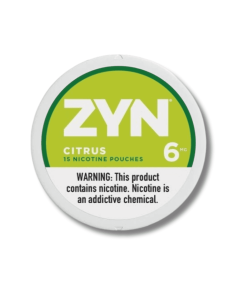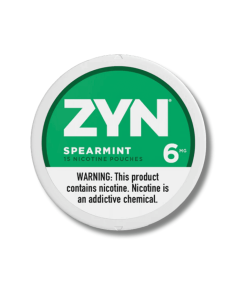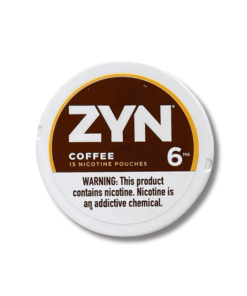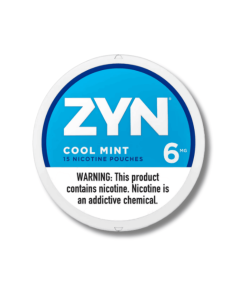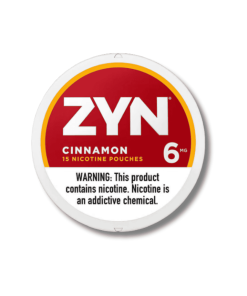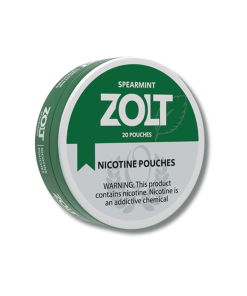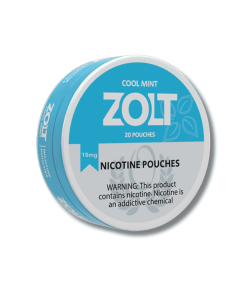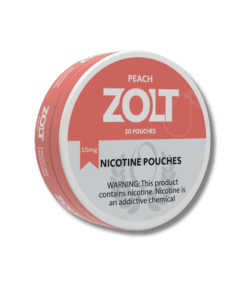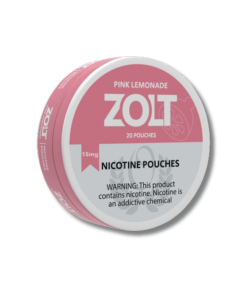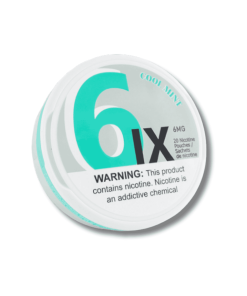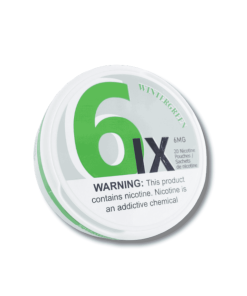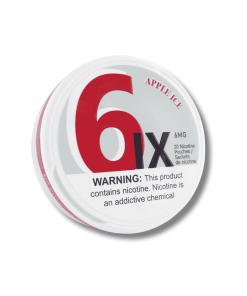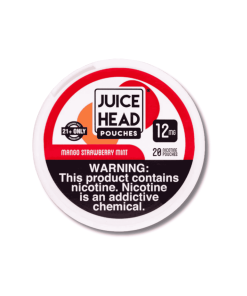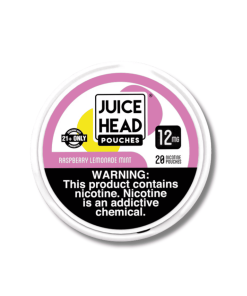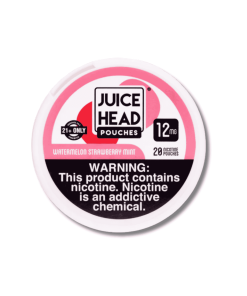Nicotine Pouches, Laws
Are Nicotine Pouches Bad for Your Teeth?
Today, nicotine pouches serve as a smoke-free, spit-free, and discreet alternative to combustible cigarettes and smokeless tobacco products, making them popular here in Canada. Some even use them as a substitute for nicotine replacement therapy products since some users tend to react positively with these tobacco leaf-free pouches as opposed to nicotine lozenges, nicotine gums, and so on.
While they are considered less harmful than smoking, many Canadians now wonder about their hidden risks, particularly when it comes to oral health. A lot of them ask the question: Are nicotine pouches bad for your teeth, gums, and long-term well-being?
Let’s take a closer look at how nicotine pouches generally work, their effects on the mouth, and what science says about their potential health consequences.
Are Nicotine Pouches Bad for Your Teeth and Gums?
Before understanding the effects of nicotine pouches, it’s important to first explain what they are.
Nicotine pouches are small, white, smokeless products that resemble miniature tea bags. They contain nicotine, which may be derived from tobacco plants or synthetically manufactured, along with plant fibres, flavourings, and food-grade fillers. And unlike Swedish snus, nicotine pouches are tobacco-free.
Using oral nicotine pouches is easy. You just have to get one from the can packaging and place it between your upper lip and gum. There, the nicotine pouch will deliver nicotine to your body through the oral mucosa. Most of the time, it should stay in the mouth for at least 20 minutes and must be removed after an hour max.
Now, the main reason why these products were created is to provide a modern, discreet alternative to smoking, chewing, and dipping tobacco. They don’t require combustion, which means you don’t have to inhale any tar, carbon monoxide, or other smoke-related toxins. This is also probably the reason why some public health experts and consumers describe them as a harm reduction tool.
However, harm reduction doesn’t mean harmless, and this distinction becomes critical when looking at overall oral health.
Nicotine itself is a stimulant that can have several effects on the mouth. When placed under the lip, the tobacco-free nicotine pouch remains in contact with the gum and nearby teeth for extended periods, ranging from 20 minutes to an hour or even more, depending on user preference. This prolonged exposure then contributes to gum irritation and dental changes.
Some common oral health risks associated with nicotine pouch usage include:
- Gum irritation and recession: Nicotine is a vasoconstrictor, which means it narrows blood vessels and reduces blood flow. When gums are deprived of sufficient circulation, they are more prone to irritation, delayed healing, and gum recession. Constantly placing nicotine pouches against the same area can worsen this process, causing uneven gum lines and sensitivity.
- Dry mouth: Nicotine and other nicotine pouch ingredients may reduce saliva production. Saliva is essential for maintaining oral health because it neutralizes acids, washes away food debris, and prevents bacteria from multiplying. Without enough saliva, the mouth becomes dry, which increases the risk of cavities, plaque build-up, and bad breath.
- Enamel staining and weakening: Although nicotine pouches are mostly white and stain less than smoking or dipping tobacco, using them frequently can still discolour your teeth over time. Certain flavourings and sweeteners may also interact with plaque bacteria, creating acids that erode enamel. Weakened enamel leaves your teeth more vulnerable to sensitivity and decay.
- Increased plaque and bacterial growth: Placing a foreign object, such as nicotine pouches, in the mouth for long periods creates an environment where bacteria thrive. Combined with reduced saliva, plaque build-up can accelerate, which may lead to gingivitis or more serious periodontal disease if not properly managed with dental hygiene.
- Oral lesions or sores: Some users of these nicotine products report white patches, irritation, or small sores on the inside of the lip or gum line where the pouch rests. These may be temporary, but repeated irritation over the years can potentially lead to precancerous changes.
While nicotine pouches may seem safer compared with cigarettes or dip tobacco, they could still cause a range of oral health risks that users like you should be aware of. To minimize oral health risks, it’s essential that you conduct good dental hygiene, ensure regular check-ups, and be mindful of using nicotine pouches. Avoid parking them for a long time in the mouth to avoid oral health issues.
How Nicotine Pouches Affect Teeth
Tobacco and nicotine products can affect one’s teeth when used for a long time. The same thing, unfortunately, might happen when you use nicotine pouches regularly.
Nicotine pouches, according to a review by experts, may directly impact the teeth in several ways. And while the degree of harm varies depending on frequency of use, length of time the pouch is placed in the mouth, and overall dental hygiene, there are consistent patterns seen among regular users. The effects range from surface-level cosmetic issues to deeper structural and sensitivity concerns that may become permanent when nicotine pouch usage continues for years.
One of the earliest and most common problems is enamel stress and weakening.
Enamel is the protective outer shell of the tooth that’s designed to guard against decay, sensitivity, and daily wear. It relies on minerals and saliva to stay strong.
Since nicotine reduces saliva production, it leaves the enamel without the constant protective wash that normally neutralizes acids and helps it remineralize. When enamel begins to weaken, small white spots or dull patches may appear, progressing into cavities. These cavities may then become permanent as damaged enamel cannot regrow, unlike bones.
Another visible effect is discolouration.
Although nicotine pouches are marketed as a cleaner alternative that will not stain teeth as severely as cigarettes or chewing tobacco, frequent exposure still carries a risk of yellowing. Nicotine itself can cause surface staining, and flavour additives or food-grade fillers may interact with plaque bacteria to create compounds that darken enamel. Over time, this staining becomes more noticeable, especially on the front teeth where pouches are often placed. While cosmetic in nature, staining can affect confidence and usually requires professional cleaning or whitening treatments to correct.
A less obvious but serious issue is the increased likelihood of tooth decay.
Even though most nicotine pouches don’t contain sugar, some flavourings and artificial sweeteners added to these products can still disrupt the bacterial balance of the mouth.
In a dry mouth environment, cavity-causing bacteria thrive. Acids produced by these bacteria then erode the enamel that forms cavities. If the pouch is consistently positioned in the same spot, it can lead to localized decay on the nearby teeth. This often shows up as small pits or weak spots near the gumline.
Dentists have also noted concerns about mechanical pressure and wear.
Keeping a pouch pressed against the same area for a long time can create slight indentation marks on the tooth surface or contribute to uneven wear patterns. This type of damage may not be noticeable at first, but over years of use, it can leave roughened surfaces that trap plaque more easily and are harder to keep clean. Such areas become hotspots for bacteria, further increasing the risk of cavities.
Finally, nicotine pouch use can result in tooth sensitivity.
As gums recede due to irritation, the roots of teeth, which are not covered by protective enamel, can become exposed. These areas are particularly vulnerable and contain dentin, a softer structure filled with microscopic tubules that lead directly to the nerve of the tooth. When exposed, dentin allows hot, cold, or sweet substances to trigger sharp bursts of pain. Sensitivity can make daily life uncomfortable and may require dental treatments such as desensitizing agents or gum grafts to manage.
All these oral health risks show that nicotine pouches don’t simply sit harmlessly in the mouth. They actively alter the environment of the teeth by reducing saliva, encouraging bacterial growth, and applying physical and chemical stress. While their effects may start small, long-term users often experience a combination of cosmetic changes, structural weakening, and sensitivity issues that can compromise dental health if left unchecked.
How Nicotine Pouches Affect Gum Tissue
Among all the areas of the mouth, gum tissue may be the most directly impacted by nicotine pouch use.
Because these products are made to sit between the lip and gum for extended periods, the tissue in this area receives constant exposure to both nicotine and the physical pressure of the pouch. Over time, this repeated contact can lead to a range of problems that affect not just the appearance of the gums but also their long-term health and ability to support the teeth.
One of the most significant issues is gum recession.
As mentioned earlier, nicotine is a vasoconstrictor, which means it narrows blood vessels and restricts blood flow to the gum tissue. Healthy gums rely on steady circulation to deliver oxygen and nutrients that keep them strong and able to repair minor damage. When blood flow is reduced, the gum tissue weakens and begins to recede. This process exposes the tooth roots, leaving them more prone to decay and sensitivity. Gum recession is also permanent, which means once the tissue is lost, it does not grow back naturally. Only surgical procedures, such as grafting, can restore the gumline.
Another common concern is gum irritation and inflammation.
Even though nicotine pouch manufacturers use food-grade fillers and plant fibres, the constant rubbing of the pouch against the same spot can create small abrasions. For some users, this results in redness, swelling, or soreness that lingers after the pouch is removed. While mild irritation may resolve quickly, chronic irritation elevates the risk of tissue breakdown and makes gums more vulnerable to infections.
Nicotine pouch use has also been linked to the development of oral mucosal lesions, sometimes referred to as pouch lesions.
These appear as white patches, roughened tissue, or small ulcers at the site where the pouch sits. Although many lesions are temporary and may heal after stopping use, persistent patches should always be examined by a dentist or doctor. Repeated irritation over the years could create conditions where abnormal cell growth occurs, which raises concerns about precancerous changes.
Another effect worth noting is delayed healing.
Nicotine interferes with the body’s natural ability to repair tissue, which means cuts, sores, or even dental procedures may take longer to heal in pouch users. For example, after a tooth extraction or gum treatment, nicotine can slow the formation of new blood vessels and collagen, which makes recovery more difficult and increases the risk of complications.
Long-term pouch use can also undermine the structural support of the teeth. You see, gums are not just soft tissue, as they also form part of the periodontal system that anchors teeth firmly in place. As gums weaken, recede, or develop chronic inflammation, the underlying bone can also become affected. This can eventually lead to tooth mobility, where teeth feel loose, and in severe cases, tooth loss.
While some of these effects may start subtly, they can accumulate over years of use, leading to permanent changes that compromise both gum and tooth stability. This is why nicotine pouch users like you should consume nicotine pouches moderately. You must also get your supply of nicotine pouches from a reputable source, like Native Smokes 4 Less, to avoid consuming counterfeit products.
Potential Long Term Effects
Many nicotine users depend on nicotine pouches to somehow curb their tobacco dependence. Some even use the pouches to gradually cut nicotine addiction until they no longer have to depend on the stimulant. But nicotine pouches still come with a number of health risks.
The most serious concerns regarding nicotine pouches come from their cumulative effects that develop over years of use. They aren’t limited to the teeth and gums but extend to overall health and well-being, since nicotine is an addictive stimulant that influences multiple systems in the body.
From an oral health perspective, the long-term effects include progressive gum recession, gum disease, enamel wear, and chronic sensitivity that can make eating and drinking uncomfortable. Cavities are more likely to occur in areas exposed to frequent pouch placement, while staining may become harder to reverse even with professional treatments.
Over time, these dental problems can combine to create more severe conditions such as periodontal disease or tooth loss. The long-term oral health risks can be summarised as:
- Significant gum recession that may require grafting procedures to repair
- Chronic tooth sensitivity that doesn’t always improve after quitting
- Increased cavity rates due to weakened enamel and reduced saliva
- Higher risk of periodontal disease that leads to loose or lost teeth
- Cosmetic concerns such as staining, uneven gum lines, and visible roots
Beyond the mouth, nicotine pouches also carry systemic effects. Nicotine stimulates the nervous system, which raises heart rate and blood pressure. With long-term use, this constant cardiovascular stress may lead to hypertension or an elevated risk of heart disease. The addictive nature of nicotine also means that users often escalate their consumption over time, moving to higher-strength pouches or more frequent use to maintain the same effect. This dependence makes quitting difficult and reinforces the cycle of exposure.
Other health concerns include the impact on sleep and digestion.
Because nicotine is a stimulant, it can interfere with sleep patterns, especially if used in the evening. Some users also report nausea or stomach irritation, likely from swallowing small amounts of nicotine or pouch residue during use. While these issues may seem minor, over the years, they can contribute to chronic discomfort or lifestyle disruption.
Cancer risk is a more complex question. Nicotine itself is not classified as a direct carcinogen, but it can create an environment where abnormal cell growth is more likely. Chronic irritation of gum tissue, particularly in areas where lesions or sores form repeatedly, may increase the likelihood of precancerous changes. Although research is still ongoing, any product that causes long-term irritation to oral tissues carries at least some theoretical risk in this area.
Psychological and behavioural effects are likewise part of the picture. Dependence on nicotine pouches can create strong associations with stress relief, socializing, or concentration, making them hard to give up. This cycle reinforces long-term use and makes health consequences more likely to appear. In addition, anxiety about dental or health effects sometimes pushes users into a cycle where worry about damage actually leads to increased use for comfort.
So, while nicotine pouches are often promoted as a safer alternative to smokeless and combustible tobacco products, safer does not mean safe, and the evidence suggests that continued use carries meaningful risks for oral and overall health.
Can you use them as a tobacco harm reduction tool? Yes, you can. You can even use them if you are planning to quit smoking and ditch traditional tobacco products. However, it’s important that you’re well-aware of their oral health effects as well as other potential health risks associated with them.
Frequently Asked Questions
Can nicotine pouches cause tooth decay?
Yes. While nicotine pouches don’t contain sugar, they reduce saliva flow, which plays a vital role in protecting against cavities. Without enough saliva, acids and bacteria can damage your enamel, increasing the risk of tooth decay.
Are nicotine pouches bad for your teeth?
Yes. Nicotine pouches can irritate gums, weaken enamel, and promote staining. Over time, these nicotine products may contribute to cavities, sensitivity, and tooth loss if oral care is neglected.
Can dentists tell if you use nicotine pouches?
Often, yes. Dentists may notice gum recession, irritation, or white patches where nicotine pouches are typically placed. They may also detect staining or other signs that are consistent with nicotine pouch use, even if you do not mention it.
Do nicotine pouches ruin your teeth?
Nicotine pouches may not ruin your teeth outright, but long-term use can cause significant damage. Problems such as receding gums, enamel wear, and chronic sensitivity can all develop if nicotine pouches are used frequently without proper dental care.
Do nicotine pouches ruin enamel?
Nicotine pouches can weaken enamel indirectly by reducing saliva and encouraging bacterial growth. While they may not erode enamel as quickly as acidic beverages, the long-term effects can still leave enamel thinner and more vulnerable.
Can nicotine pouches damage your gums?
Yes. Gum irritation, slowed healing, and recession are some of the most common side effects of pouch use. Prolonged contact between the pouch and gum tissue makes this area particularly vulnerable.
Summary
Nicotine pouches may seem like a safer, smoke-free alternative to cigarettes, traditional chewing tobacco and other tobacco products, but they are not entirely harmless. Their impact on teeth and gums includes enamel weakening, staining, gum recession, irritation, and increased risk of cavities. In the long term, these effects can lead to chronic dental issues, periodontal disease, and tooth loss. Beyond oral health, nicotine addiction and cardiovascular risks also remain pressing concerns.
For Canadians who use or are considering using nicotine pouches, the key takeaway is balance.
While they may reduce harm compared with smoking, these orally administered nicotine products still pose notable risks for oral and overall health. Regular dental check-ups, strong oral hygiene habits, and awareness of nicotine’s effects are all key in minimizing damage.
Now, do you wonder whether nicotine pouches contain calories? Learn the truth here at NS4L.























